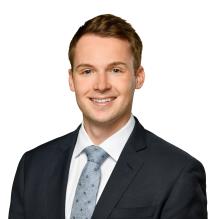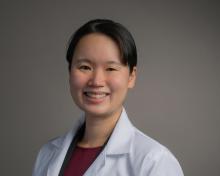- STS workforces advance the cardiothoracic surgery specialty by collaborative inquiry and productivity.
- Trainee workforce participation is an invaluable opportunity to cultivate strong professional skills, form new mentor relationships, and contribute to academic accomplishment alongside experienced STS members.
- The workforce structure allows early career attendings to make an impact by participating in academic pursuits and connecting with colleagues.
The STS oversees numerous workforces and councils with various focuses ranging from cardiothoracic clinical practice to databases to education to surgeon wellness. Participation and productivity of these groups are a foundational mechanism for the STS to improve the lives of patients living with cardiothoracic diseases through leadership, professionalism, innovation, collaboration, diversity, and inclusion. Contribution as a trainee or early career attending provides a unique opportunity to collaborate, gain knowledge, make an impact, and network within the cardiothoracic community. The self nomination process for 2025-2026 commitee and workforce roles is now open. The deadline for applications is Monday, September 2, 2024.
Cultivating Excellence through Collaboration
STS workforces include individuals with diverse clinical, academic, and cultural backgrounds who come together to find solutions to specific needs in modern-day cardiothoracic surgery. The workforces are structured with leaders in the field guiding workforce members as appointed vice chairs and chairs. Members integral to providing comprehensive care to cardiothoracic surgery patients who are non-surgeons also participate. For example, the Multidisciplinary Workforce is composed of advanced practitioners, anesthesiologists, intensivists, and perfusionists. Separate workforces also can collaborate along overlapping areas of interest. Members are aligned and recognize the most pertinent issues of the day and are motivated to face any challenge.
Trainees and early career attendings often have a fresh perspective on these topics and can explore innovative ideas in partnership with more experienced mid-career or senior colleagues. While experience is valuable in workforces, trainees and early career attendings are essential to their ultimate success and sustainability. This workforce framework facilitates mentor relationships as new concepts are formulated, optimized, trialed, and disseminated. Furthermore, it allows trainees to lead projects, develop excellent professional skills, and acquire new knowledge from leaders in the field.

Early in my cardiac surgery residency, I recognized the importance of surgical quality programs to improve healthcare delivery and ensure robust patient outcomes. I was involved with our local initiative and worked with stakeholders to design a framework for our morbidity and mortality rounds to collect longitudinal data and launch quality improvement initiatives.
The efforts were recognized by the STS Workforce on Patient Safety*, and under the leadership of Dr. Susan Moffatt-Bruce, I was very fortunate to be invited to develop the program further as a member of the Workforce. Expert insights from cardiothoracic surgeons across North America were paramount to enhancing the methods that could be immediately deployed in any surgical division seeking to build its quality program. This framework is now published in The Annals of Thoracic Surgery Short Reports. (1)
I am delighted that our collaborative efforts provided concrete methods to facilitate high-quality patient care. I cherish the new professional partnerships I have formed and am so grateful for the guidance and support I received to complete the project. Participation in this STS Workforce is an exceptional educational and professional development opportunity. I highly recommend that my fellow trainees get involved with Workforces that align with their interests and push the specialty forward!
~ Dr. Joel Bierer, cardiac surgery resident, Dalhousie University
Making an Impact through Connection
Collaboration is a foundational skill for surgeons to excel in clinical practice, academic pursuits, and program administration. Plus, the transition for junior faculty can be challenging and isolating. (2) The STS Workforces offer a unique small group environment for trainees and early career attendings to enhance communication/teamwork skills, embrace national/international networking, and encourage professional development.
There are numerous ways early career surgeons can contribute, such as brainstorming project ideas, designing programs, creating new educational content, and learning the behind-the-scenes effort that goes into the workings of the group at large. The advantages are multifaceted and examples of opportunities to be productive and/or creative abound and include writing a manuscript, conducting a national survey to answer an interesting question, or serving on a webinar panel. Ultimately, working together amongst a community of healthcare professionals passionate about improving the cardiothoracic specialty through research, education, and advocacy is beneficial to any new STS member.

If anyone were to scroll through the list of STS Workforce Members, you’d quickly recognize many distinguished names among each subspecialty. As a surgical trainee for over a decade, I was quick to recognize peers and mentors from my previous institutions. So, when the opportunity to be reunited with Dr. Susan Moffatt-Bruce in the STS Workforce on Patient Safety* to promote Quality and Patient Safety presented itself, I was elated.
The warm welcome and abundant collaborative opportunities and exposure to an extensive supportive network have been more beneficial than I could’ve anticipated. As an academic congenital cardiac surgeon in my first few years of practice, it has been essential for me. The STS is to be commended for making membership extremely accessible to qualified trainees and junior faculty.
Similarly, the self-nomination process was simple for me to choose which specific areas I wanted to participate in. I would highly encourage those who are looking to get connected and to make an impact with leaders in the field to consider nominating yourself during this upcoming application cycle in August 2024.
~ Dr. Madonna Lee, congenital cardiac surgery, assistant professor, Yale School of Medicine
Notes: *The STS Workforce on Patient Safety has since been restructured and remains active as the Patient Safety Taskforce under the STS Workforce on National Databases.
References:
1. Bierer J, Chedrawy E, Herman C, Walsh G, Sudarshan M, Harrington S, Feindel C and Moffatt-Bruce S. Quality Improvement and Patient Safety Rounds—A New Paradigm in Cardiothoracic Surgery. Annals Short Ann Thorac Surg Short Reports. 2024;2:141-147.
2. Lee ME, Woodard GA, Assi R. Connection through cardiothoracic surgery subspecialty collaboration: Strategies for Early Faculty Peer Network Development. JTCVS Open. 2022;12:329-34.